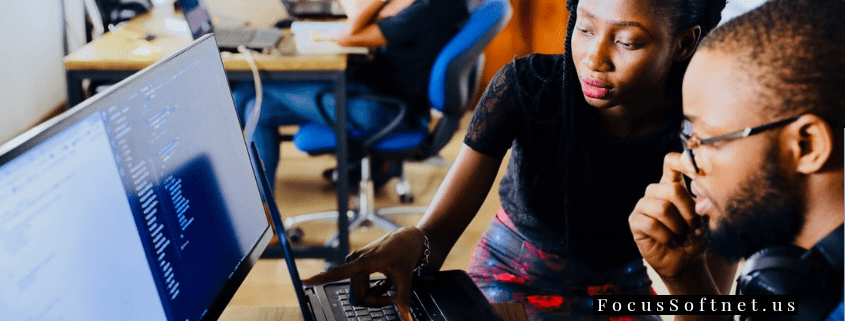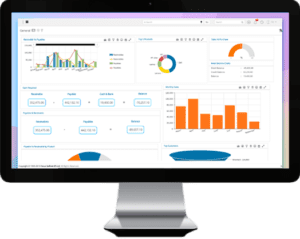Picking right ERP system from over 25 ERPs
Picking an ERP system is hard for anyone. It’s harder even when you’re representing an iconic and storied brand. In 2019, a Global 2000 company in distribution, manufacturing and services began their search for a replacement ERP for their aging system. It was a long and arduous process. Over 25 ERPs launched bids, and one lone figure emerged from the dust. Focus9.
It might be easy to write this off as a case of a budget conscious mid-market solution pick made by executives trying their best to be pragmatic among a slew of smaller software providers, but our client-to-be had actually seriously considered other large enterprise-level choices with competitive pricing. Think options like NetSuite, SAP S/4HANA, and Dynamics 365. In a competitive bidding process like this, it’s easy (and often the case) for a company’s ERP project team to go with the safer choice. It’s the old saying “nobody ever got fired for picking ___.” So why take the risk with a lesser known brand?
Interested in their decision-making process, we asked our customer for their key considerations in the ERP selection process after they decided to go with Focus. We also asked them why exactly did they choose Focus? They gave us an answer that ultimately aligned with what we had been seeking to do the whole time: a relentless focus on what’s most important – the fundamentals.
In no particular order, our customer chose Focus for the following:
- Cost Effectiveness
- Flexibility
- Simplicity
Today, we’ll break down each of these reasons and how it applied to our customer as a global distribution and manufacturing brand. While our client occupies a very specific and rare niche as a Global 2000, the lessons we can take out of its selection process can apply to anybody, from a growing small business to Fortune 500s. For a more generalized explanation of the 4 fundamentals we go for at Focus, check out our innovation enablement article.
Cost Effectiveness
For our customer, too often they had heard of the story of consultants over-promising on their proposed solutions and under delivering, leading to even more resources being poured into an ERP system implementation. The biggest thing on their mind was whether their choice would pay off in the long term. As company leaders, we naturally look to invest and allocate our capital in things that yield lucrative returns in the future, some things riskier than others. But ERP systems are unnaturally murky in their true risk and costs, often only appearing by their sticker price. The truth is there is so much more to the than simply the licensing cost, not to mention the potential losses from a failed implementation.
Our customer’s project team knew this, and in addition to the implementation and licensing costs they also considered often overlooked aspects such as the additional costs brought onto their IT departments, data conversion, training, and testing. Focus took a bold step to be transparent and we brought forth our best estimates of these hidden costs as we could. For the project team, this was a major boon as they had baseline numbers to work with.
Flexibility
The project team also came to another key conclusion in their initial criteria for ERP selection: there is an inherent opportunity cost that comes with picking an ERP system not scalable enough that could very well translate to unneeded real costs. After all, having to switch to another ERP itself is another cost that can prove to be very expensive. For the team, a successful implementation did not just mean a system that worked today; it had to be a system that worked tomorrow.
The Focus team made the case for themselves as a partner that had served every kind of customer from small businesses to large enterprises like Dunkin’ Donuts and Boeing. Focus also talked about their projects in AI and financial automation that could even further reduce their costs and thousands of hours of labor. But on top of that, they also gave realistic projections for whether or not their system could sustain our customer’s future growth. By admitting what we could handle and our own limits rather than over-promising, Focus was able to make an honest case on what we could provide.
On top of this, our customer did not only need an ERP system that was flexible for growth, but flexible for their software roster as well. ERPs are rarely a clean purchase, they are almost always paired into existing systems with a need for ever-complex integrations. The project team looked for a reliable enough ERP system that could fit not just their current external platforms, but potential future integrations they needed too. Focus provided that with access to over 1000 integrations and the ability for the team to make custom functions and modules of their own using drag-and-drop design.
Simplicity
No matter what the product or service is, intuitive use is key. From the very beginning with being one of the first GUI based accounting software providers, Focus prioritized ease of use. This investment paid off when it came to impressing the project team.
The first thing that came to their attention was the ease in which custom modules could be created and deployed. Using drag and drop interfaces, team members without any technical experience at all could create modules that fit their department needs and functions without having to give someone else a spec and tediously hold meetings to fit the solution to their ideal vision.
The second was the promise of AI and its implications in changing the way business was done. AIFA, in early development at the time, was shown to start with routine but incredibly important tasks such as pulling up specific invoices and calculations. An invoice that took 2 minutes to pull up could now be displayed in less than 5 seconds by voice command. And voice activated search commands and calculations were only the beginning. Today, AIFA is being expanded to support RPA (robotic process automation) and predictive analytics. Using system data, AIFA will be able to reach insights on its own whether it comes to our customer’s financials or their most commonly used workflows inside the ERP system.
Conclusion
At Focus, time after time we notice that implementation failures always stem from the lack of focus on the fundamentals. New features are great and in fact, capacity for innovation is a sort of fundamental in itself (flexibility). But it’s important to not fixate on the new as much as what it actually brings to the table. Using our approach for the fundamentals, Focus was able to land an implementation where 24 other bids could not.
If you’re thinking of making your own ERP selection, we hope you focus on the fundamentals too, whether it be with Focus or any software partner.
About Focus
Focus Softnet is a leading provider of next generation ERP and AI systems. With over 25 years of experience, and 27 offices in 17 countries, we’ve had the unique ability to serve over 38,000 clients. Our unique ERP platform connects departments that include Accounting and Finance, Logistics, HR, Supply Chain, Sales, Marketing, and Customer Service at a level that gives our clients the capacity to innovate and scale faster.



